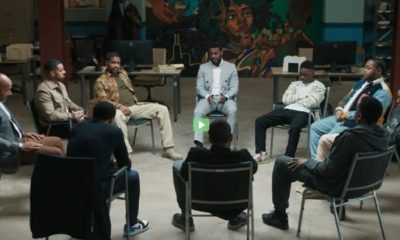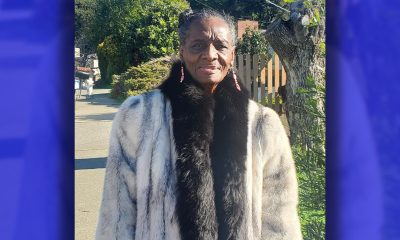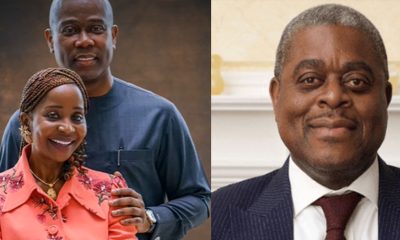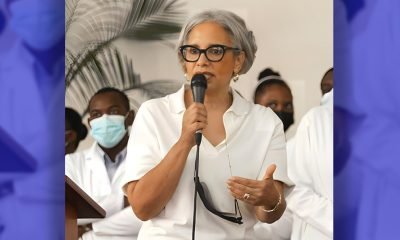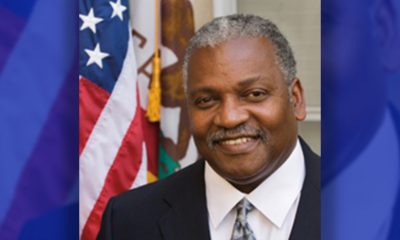World
Old Colonial Statues Are in the Crosshairs in South Africa

In this photo taken on Friday, March 20, 2015, a student at the Cape Town university takes part in a protest against a statue of British colonialist Cecil John Rhodes, rear, on display on the university campus near the city of Cape Town, South Africa. (AP Photo/Schalk van Zuydam)
CHRISTOPHER TORCHIA, Associated Press
CAPE TOWN, South Africa (AP) — It began with a container of excrement.
On March 9, a South African student protester tossed feces on a statue of British colonialist Cecil John Rhodes at the University of Cape Town, igniting nationwide calls to remove other statues of former white leaders. A statue of Britain’s King George V on a University of KwaZulu-Natal campus was splattered with white paint. Some activists want a statue of Paul Kruger, a white Boer leader in the late 19th century, to be shifted from a central square in Pretoria, the capital, to a museum.
The uproar is part of a larger discourse about change in South Africa, where the legacy of apartheid, the white minority rule that ended two decades ago, is often blamed for economic inequality, a struggling education system and other problems.
Mthunzi Mthimkhulu, a technology consultant and former student at the University of Cape Town, stood Saturday near the Rhodes statue, which had been wrapped in black garbage bags by protesters. Obscene graffiti covered the pedestal.
“We don’t need reminders of where we came from. We know our struggles,” he said. “What we need is things that will take us forward.”
By Sunday, the Rhodes statue was boarded up, its days apparently numbered. University Vice-Chancellor Max Price, who is white, described Rhodes as a “villain” and said the statue should be moved. Rhodes, who died in 1902, was “a kind of colonial warlord” and “ardent segregationist” who made a fortune in mining and grabbed land from the local population, said Paul Maylam, a history professor at Rhodes University in the South African city of Grahamstown. Rhodes was also associated with education and philanthropy, partly because of scholarships that carry his name, Maylam said.
There have been calls for Rhodes University’s name to be changed. University Vice-Chancellor Sizwe Mabizela said there should be a respectful debate.
Cape Town residents wonder about the fate of the temple-like Rhodes Memorial on the slopes of Devil’s Peak, overlooking the city. There is also a Rhodes statue in Company’s Garden, a central park. One statue arm gestures to the distance and, in a call for British territorial expansion, a pedestal engraving reads: “Your hinterland is there.”
There is more to the furor.
Some South Africans complain that faculties at universities are mostly white and that Western-based curricula ignore African culture. Some also assert that Nelson Mandela, the anti-apartheid leader who was elected president in 1994, was too soft on a white minority that still commands enormous economic clout. On Tuesday, Ngoako Ramatlhodi, the mineral resources minister, said there is “still some way to go” before most South Africans, particularly blacks, benefit from a mining industry forged many decades ago to benefit a “select few.”
South Africa is grappling with questions such as should the Rhodes statue and other perceived symbols of racial oppression be mothballed or displayed as warnings of what should never happen again? What, if anything, should take their place? Who decides? Where does it stop? One caller to a radio show mockingly asked whether the Union Buildings in Pretoria, which were designed more than a century ago and today house government offices, should be leveled.
Mthimkhulu, the former student, said he thinks the statue-targeting campaign is mushrooming now because, in the early years after apartheid, people focused on seizing jobs and other opportunities previously denied to them. Another theory is that South African blacks had directed their ire at symbols of the apartheid system overseen by the white Afrikaner minority, rather than the earlier British colonial period.
“I think this thing is going to snowball throughout South Africa,” said Chris Landsberg, an African diplomacy expert at the University of Johannesburg.
Last week, the academic moderated a statue debate at the Centre of the Book, a domed, early 20th century building on Queen Victoria Street in Cape Town. Activists hoisted banners reading “Rhodes must fall” and “All Rhodes lead to colonization of the mind.”
Landsberg also said there should be more critical debate about the legacy of Mandela, challenging the “iconization” of a leader memorialized in numerous sculptures and other tributes. In a conciliatory gesture, Mandela, who died in 2013, had lent his name to the Mandela Rhodes scholarships for postgraduate study in South Africa.
“By combining our name with that of Cecil John Rhodes in this initiative is to signal a closing of the circle and a coming together of two strands in our history,” Mandela said more than a decade ago.
The most sweeping name change happened in a neighboring country whose name changed from Rhodesia to Zimbabwe in 1980 after white rule ended. Zimbabwe also removed Rhodes statues, but resisted calls to dig up Rhodes’ grave in the Matobo National Park on grounds that it is a reminder of colonialism.
Andrew Dhliwayo, a Zimbabwean student at the University of Cape Town, described the Rhodes statue as a useful channel for debate.
“The fall of the statue won’t change much,” he said. “It’s just for people to get their views out there.”
Copyright 2015 The Associated Press. All rights reserved. This material may not be published, broadcast, rewritten or redistributed.
Activism
Oakland Ambassadors Strengthen Ties and Aid Efforts in Ghana
Oakland natives and esteemed members of the African American Sports and Entertainment Group (AASEG), Jonathan P. Jones and Dr. Maritony Efua Jones, recently embarked on a significant journey to Ghana as guests of the World Martial Authority Ghana. This trip signifies a crucial opportunity to bolster partnerships, explore new avenues of collaboration, and contribute to impactful initiatives in Ghana.
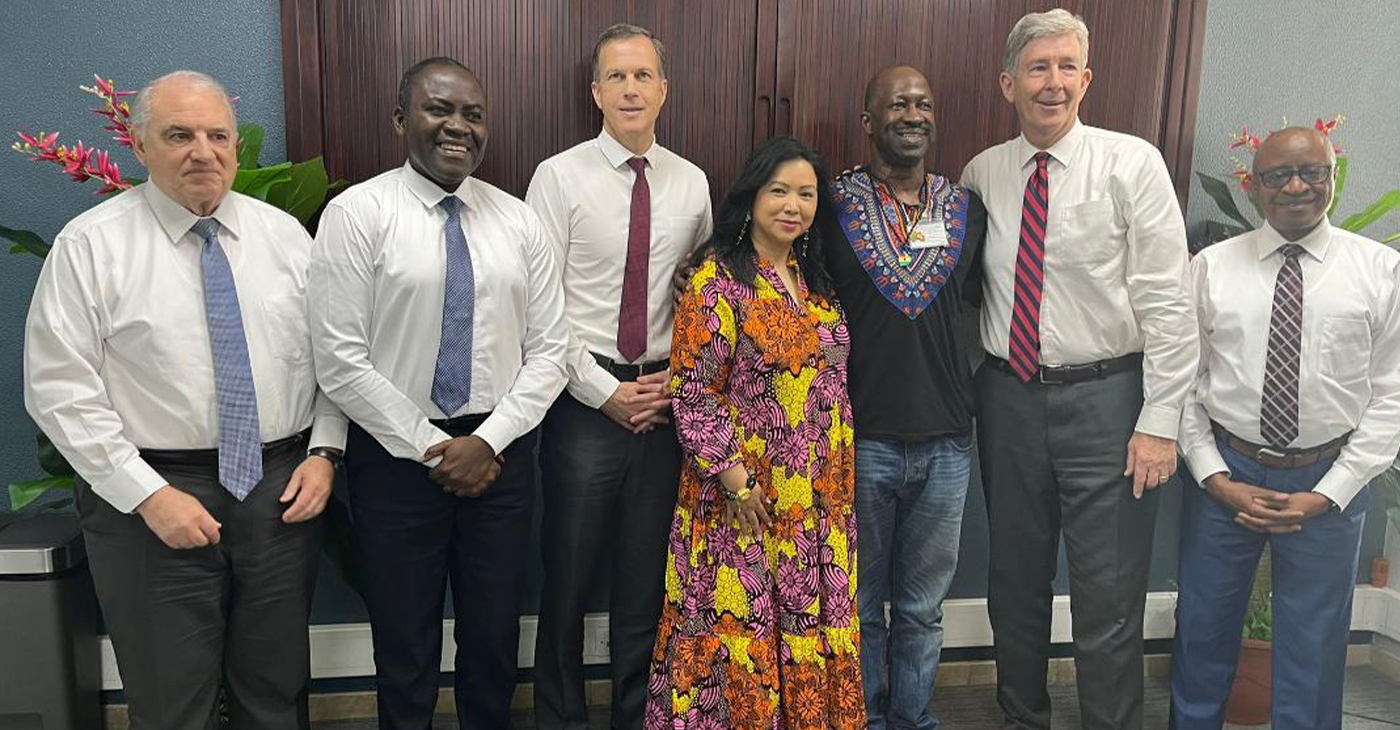
By Post Staff
Oakland natives and esteemed members of the African American Sports and Entertainment Group (AASEG), Jonathan P. Jones and Dr. Maritony Efua Jones, recently embarked on a significant journey to Ghana as guests of the World Martial Authority Ghana.
This trip signifies a crucial opportunity to bolster partnerships, explore new avenues of collaboration, and contribute to impactful initiatives in Ghana.
Upon their arrival at Katota Airport in Accra, Ghana, the Joneses were warmly received by His Royal Majesty Okatakyie Asafo Boakye III, the distinguished king of Sanzule Kingdom in the Eastern Nzema, and Etse Nyamedi of World Martial Authority, Ghana.
Nyamedi accompanied the Joneses to the city of Mepe, which had recently experienced flooding, to assess damages and engage with local leaders, elders, and youth regarding the city’s urgent needs after major floods last fall.
Key concerns and priorities identified by the community include comprehensive flood mitigation measures, agricultural support, housing initiatives, educational enhancements, improved healthcare access, and the development of communal recreational spaces.
The Joneses were also graciously invited to meet with leaders of The Church of Jesus Christ of Latter-day Saints at their headquarters in Accra. This meeting provided insights into ongoing humanitarian efforts in Ghana and explored avenues for collaboration to further assist Ghanaian communities.
The LDS leaders shared their prompt response to the recent flood, demonstrating their commitment to humanitarian aid by dispatching substantial supplies including medical provisions, sanitation items, blankets, and food to assist flood victims just four days after the disaster.
Additionally, Boakye extended a special invitation to the Joneses to his palace, where they were pleasantly surprised with a heartfelt recognition ceremony. Maritony Jones was honored as the Queen Mother of the Sanzule Kingdom in acknowledgment of her dedicated work, while Jonathan Jones was lauded and welcomed as the ambassador of the Sanzule Kingdom, symbolizing a meaningful homecoming to their ancestral land.
The visit not only strengthens ties between Oakland and Ghana but also underscores the collaborative spirit and commitment to meaningful progress and humanitarian endeavors shared by all involved parties.
Barbara Lee
Congresswoman Barbara Lee Issues Statement on Deaths of Humanitarian Aid Volunteers in Gaza
On April 2, a day after an Israeli airstrike erroneously killed seven employees of World Central Kitchen (WCK), a humanitarian organization delivering aid in the Gaza Strip, a statement was release by Rep. Barbara Lee (D-CA-12). “This is a devastating and avoidable tragedy. My prayers go to the families and loved ones of the selfless members of the World Central Kitchen team whose lives were lost,” said Lee.

By California Black Media
On April 2, a day after an Israeli airstrike erroneously killed seven employees of World Central Kitchen (WCK), a humanitarian organization delivering aid in the Gaza Strip, a statement was release by Rep. Barbara Lee (D-CA-12).
“This is a devastating and avoidable tragedy. My prayers go to the families and loved ones of the selfless members of the World Central Kitchen team whose lives were lost,” said Lee.
The same day, it was confirmed by the organization that the humanitarian aid volunteers were killed in a strike carried out by Israel Defense Forces (IDF). Prior to the incident, members of the team had been travelling in two armored vehicles marked with the WCF logo and they had been coordinating their movements with the IDF. The group had successfully delivered 10 tons of humanitarian food in a deconflicted zone when its convoy was struck.
“This is not only an attack against WCK. This is an attack on humanitarian organizations showing up in the direst situations where food is being used as a weapon of war. This is unforgivable,” said Erin Gore, chief executive officer of World Central Kitchen.
The seven victims included a U.S. citizen as well as others from Australia, Poland, the United Kingdom, Canada, and Palestine.
Lee has been a vocal advocate for a ceasefire in Gaza and has supported actions by President Joe Biden to airdrop humanitarian aid in the area.
“Far too many civilians have lost their lives as a result of Benjamin Netanyahu’s reprehensible military offensive. The U.S. must join with our allies and demand an immediate, permanent ceasefire – it’s long overdue,” Lee said.
Bay Area
Nigerian Bank Chief Killed in Helicopter Crash on Way to Superbowl XVIII
According to the San Bernardino County Sheriff’s Dept., the crash occurred near Nipton, on the edge of the Mojave Desert Preserve. The poor weather conditions — rain, wind and snow showers—may have contributed to the accident, although the investigation is not complete. All six aboard were killed. Herbert Wigwe, 57, founded Access Bank in 1989, and it became the country’s largest competitor, Diamond Bank in 2018.
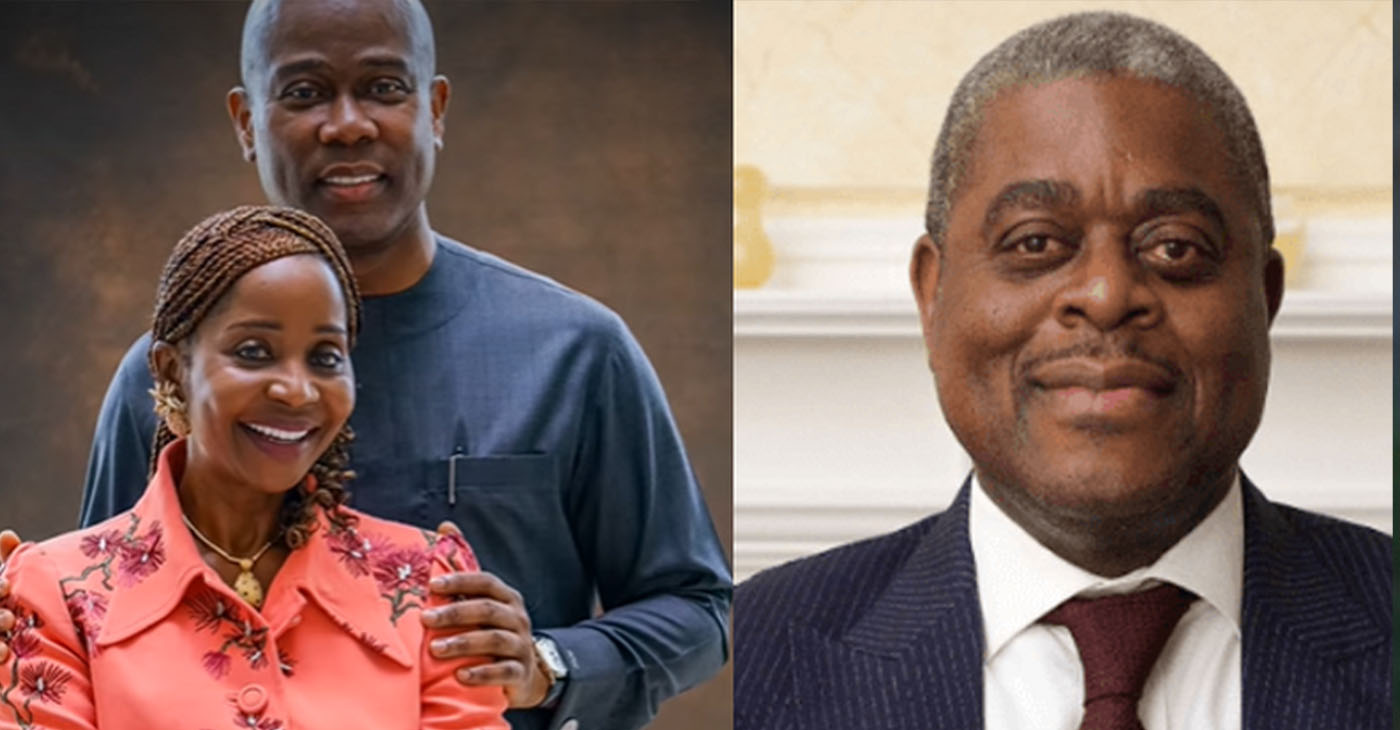
By Post Staff
The co-founder of one of Nigeria’s largest banks died with his wife, son and three others when the helicopter transporting them from Palm Springs, Ca., to Boulder City, Nev. to attend the fifty-eighth SuperBowl at the stadium outside Las Vegas crashed on Feb. 9.
According to the San Bernardino County Sheriff’s Dept., the crash occurred near Nipton, on the edge of the Mojave Desert Preserve. The poor weather conditions — rain, wind and snow showers—may have contributed to the accident, although the investigation is not complete. All six aboard were killed
Herbert Wigwe, 57, founded Access Bank in 1989, and it became the country’s largest competitor, Diamond Bank in 2018.
More recently, Wigwe was planning to open a banking service in Asia this year after making successful expansions to other parts of Africa, including South Africa, Kenya, and Botswana.
Nigerian President Bola Tinubu described Wigwe’s death as an ‘overwhelming tragedy.”
Oakland resident and Nigerian immigrant Kayode Gbadebo agrees with Tinubu. He met Wigwe in Nigeria but crossed paths with him in London in 2006. Wigwe, he said, “took risks.”
He was young and people thought he couldn’t do what he intended, which was not so much about money but community.
“He was more like Jesus in washing the feet of the poor– Wigwe was culturizing community,” Gbadebo said.
“There will never be another like him. This is a deep, deep loss” and he hopes everyone will eventually “be comforted.”
He was also disappointed that a replacement has already been named even before Wigwe is buried. “It is not reasonable. You don’t want a vacuum, but it’s” not fair to the family, Gbadebo observed.
Wigwe had also been working to solve the migration issues from African countries, believing that “investing in higher education was key to controlling mass migration, which “is destabilising countries across the world,” BBC News reported.
“We need to take a holistic approach to address global migration, starting with our traditional framework for international development,” Wigwe wrote.
To that end, according to BBC News, Wigwe was preparing to open Wigwe University in Niger, where he was from.
“The best place to limit migration is not in the middle of the Mediterranean or the English Channel or the Rio Grande. It is in the home countries that so many migrants are so desperate to leave,” he wrote, saying his university was an opportunity for him “to give back to society.”
Besides Wigwe and his wife, Chizoba Nwuba Wigwe, and one son, two crew members and Bimbo Ogunbanjo, former group chairman of the Nigerian Exchange Group Plc, were also killed in the crash.
According to Wikipedia, three other children survive Wigwe.
In his statement reported in People magazine, Tinubu described Wigwe as “a distinguished banker, humanitarian, and entrepreneur.”
“I pray for the peaceful repose of the departed and ask God Almighty to comfort the multitude of Nigerians who are grieving and the families of the deceased at this deeply agonizing moment,” the president said.
He added, “Their passing is an overwhelming tragedy that is shocking beyond comprehension.”
Besides feeling the tremendous loss, Gbadebo fears the disorder and greed that will follow. “It’s a mess,” he said.
People magazine, BBC News and Wikipedia were the sources for this report.
-

 Community3 weeks ago
Community3 weeks agoFinancial Assistance Bill for Descendants of Enslaved Persons to Help Them Purchase, Own, or Maintain a Home
-

 Activism4 weeks ago
Activism4 weeks agoOakland Post: Week of April 3 – 6, 2024
-

 Business3 weeks ago
Business3 weeks agoV.P. Kamala Harris: Americans With Criminal Records Will Soon Be Eligible for SBA Loans
-

 Activism3 weeks ago
Activism3 weeks agoOakland Post: Week of April 10 – 16, 2024
-

 Community3 weeks ago
Community3 weeks agoAG Bonta Says Oakland School Leaders Should Comply with State Laws to Avoid ‘Disparate Harm’ When Closing or Merging Schools
-

 Community2 weeks ago
Community2 weeks agoOakland WNBA Player to be Inducted Into Hall of Fame
-

 Community2 weeks ago
Community2 weeks agoRichmond Nonprofit Helps Ex-Felons Get Back on Their Feet
-

 Community2 weeks ago
Community2 weeks agoRPAL to Rename Technology Center for Retired Police Captain Arthur Lee Johnson


